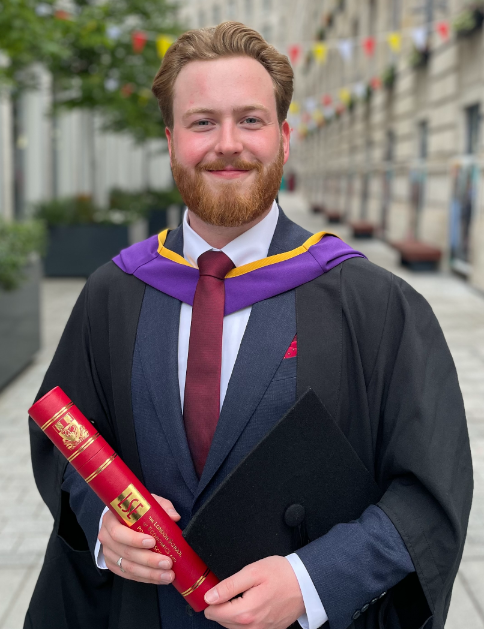Max is a Policy Officer at the European Commission.
 Maximilian Jumpertz, MPA
Maximilian Jumpertz, MPA
After spending a year working in a refugee camp in Germany at age 18, I realized early on that I wanted to build a career dedicated to serving the public good. Throughout my bachelor’s in political science, I was eager to engage with different public policy challenges in a range of organizational settings. Working as an intern in European policy, international diplomacy and public sector strategy consulting showed me what I was already good at and which skills I still needed to build. Therefore, I chose the Dual MPP/MPA at Sciences Po and LSE to add empirical methods and economic analysis to my public policy “toolkit”. I don’t think I could have made a better choice.
The first year in Paris gave me a solid methodological and analytical foundation and I learned about topics like climate change, global inequality and sustainable development. The second year in London felt like the ideal culmination of my academic journey. The rigorous curriculum at the SPP taught me how to use data for evidence-based policymaking. I specialized in economic policy, with most of my coursework dedicated to exploring the economic forces that influence public policy at various levels: internationally between countries, and domestically in the relationships among the state, firms, and citizens. Both the dissertation and the capstone project with the OECD were challenging because they encouraged me to investigate new areas of study that I had not encountered before.
Right after the end of the coursework at the LSE, I wrapped up my time in London with an internship at PUBLIC, a digital advisory firm. There, I used my knowledge from the SPP to co-author a guidebook for civil servants and digital teams on how to use econometrics to evaluate digital projects. In my current role with the European Commission’s Reform and Investment Task Force (SG REFORM), I support EU member states in designing and implementing growth-enhancing structural reforms across areas such as energy, digital transformation and fiscal policy. At the SPP I learned that we cannot, in good conscience, rely on one-size-fits-all approaches – good public policy always accounts for a society’s history, culture, political economy and unique development challenges. Such reforms must be tailored to the specific contexts of each country, and political dynamics play a crucial role in their success.
My work nowadays draws heavily on the skills I developed throughout my master’s: I manage project-like assignments on a wide variety of topics and collaborate in diverse teams, as I practiced during my capstone and coursework. I conduct rigorous research, as I did for my dissertation; I apply some of the analytical approaches that I picked up during my specialization. Above all, the SPP experience has strengthened my confidence to contribute meaningfully to high-level policy discussions.
Max is happy to connect via LinkedIn.